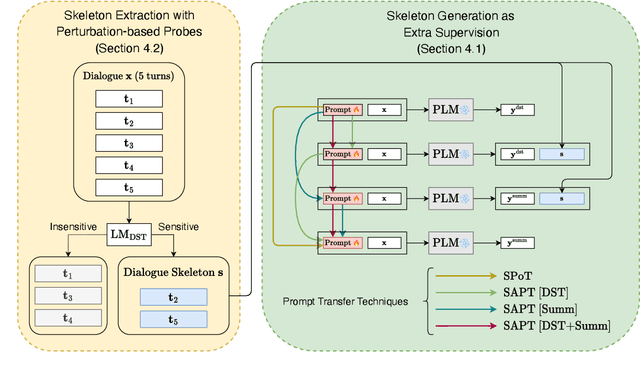Few-Shot Dialogue Summarization via Skeleton-Assisted Prompt Transfer
Paper and Code
May 20, 2023



In real-world scenarios, labeled samples for dialogue summarization are usually limited (i.e., few-shot) due to high annotation costs for high-quality dialogue summaries. To efficiently learn from few-shot samples, previous works have utilized massive annotated data from other downstream tasks and then performed prompt transfer in prompt tuning so as to enable cross-task knowledge transfer. However, existing general-purpose prompt transfer techniques lack consideration for dialogue-specific information. In this paper, we focus on improving the prompt transfer from dialogue state tracking to dialogue summarization and propose Skeleton-Assisted Prompt Transfer (SAPT), which leverages skeleton generation as extra supervision that functions as a medium connecting the distinct source and target task and resulting in the model's better consumption of dialogue state information. To automatically extract dialogue skeletons as supervised training data for skeleton generation, we design a novel approach with perturbation-based probes requiring neither annotation effort nor domain knowledge. Training the model on such skeletons can also help preserve model capability during prompt transfer. Our method significantly outperforms existing baselines. In-depth analyses demonstrate the effectiveness of our method in facilitating cross-task knowledge transfer in few-shot dialogue summarization.
 Add to Chrome
Add to Chrome Add to Firefox
Add to Firefox Add to Edge
Add to Edge